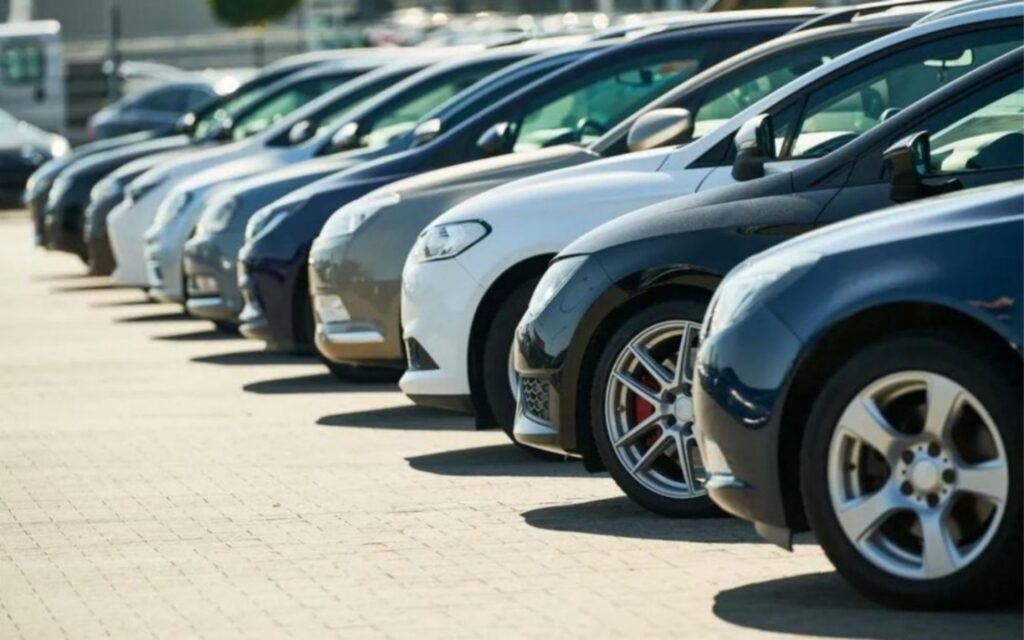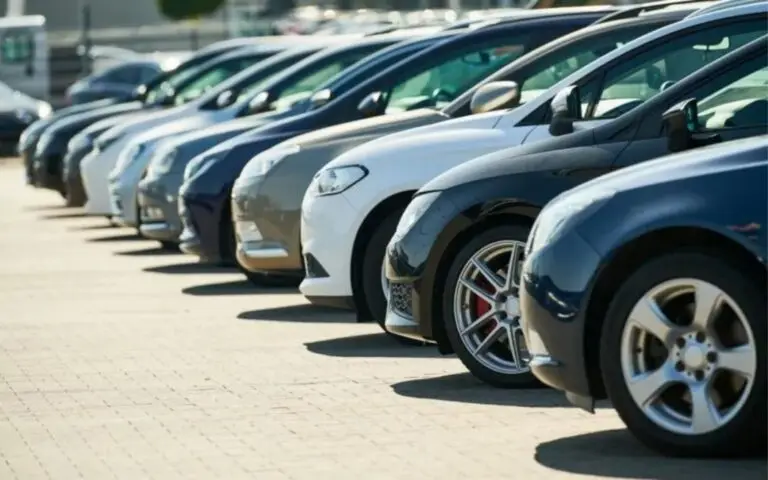
ECOS (India) Mobility & Hospitality Company is coming up with its IPO offer for sale worth Rs. 601.20 crores, which will open on 28th August 2024. The issue will close on 30th August 2024 and be listed on the exchange on 4th September 2024. In this article, we will look at ECOS India Mobility & Hospitality IPO Review and analyze its strengths and weaknesses. Keep reading to learn about the company.
ECOS India Mobility & Hospitality IPO – About The Company
The company was incorporated in 1996. ECOS (India) Mobility & Hospitality is India’s largest chauffeur-driven mobility provider for corporates. It offers chauffeured car rentals (CCR) and employee transportation services (ETS) to Fortune 500 and BSE 500 companies. The company operates in 109 Indian cities and has a fleet of over 12,000 vehicles. It uses an asset-light model, owning only 5.81% of its fleet.
ECOS’s business model focuses on B2B services. For CCR, it serves corporate clients while end-users are employees or guests. ETS manages employee home-office-home transportation. The company also offers global car rentals in over 30 countries. They use technology to integrate with customer systems, improving efficiency and convenience for corporate travel management.
The company generates revenue from CCR and ETS, with ETS contributing 54.71% and CCR 43.29% of total revenue in Fiscal 2024. It has a strong customer base, serving over 1,100 organizations.
ECOS India Mobility & Hospitality IPO – About The Industry
The Indian road transport sector has grown significantly over the years with value expected to reach $184.7 billion by 2030. The light vehicle mobility market consists of personal and cab segments. The cab segment includes corporate (B2B) and retail (B2C) categories, offering various services like employee transportation and car rentals.
Corporate mobility is expanding due to the increased presence of companies and changing work patterns. Factors driving growth include the transition to in-office work, focus on employee satisfaction, and rising corporate travel. The expansion of office space in major cities and the growing number of airports are also contributing to increased demand.
The corporate mobility sector is shifting towards a more organized structure. Companies now prefer reliable and accountable service providers. Large players are aiming for pan-India presence through consolidation. The retail car rental business is also growing, with revenues expected to reach $7.5 billion by 2030, reflecting a continued preference for chauffeur-driven services.
ECOS India Mobility & Hospitality IPO – Financial Highlights
ECOS (India) Mobility & Hospitality reported revenue from operations of Rs. 554.41 crores in FY24 compared to Rs. 422.67 crores in FY23, a 31.16% increase YoY. The company had Net profits in FY24 of Rs. 62.53 crore compared to Rs. 43.59 crore in FY23. There was an YoY increase of 43.45%.
There was an improvement in Other income in FY24. The expenses was a bit higher in FY24 which includes cost of services, purchase of traded goods, employee cost, and other expenses. The higher net profits was due to increase in operational revenue and other income.
The earnings per share in FY24 was Rs. 10.42 per share which was an increase from the previous year’s Rs. 7.27 per share. There was a huge leap from FY22 around 5 times increase in EPS which has increased value for its shareholders.
ECOS India Mobility & Hospitality IPO – Ratio Performance & Segments
The RoE stood at 43% in FY24 compared to 47% in FY23. There was a significant improvement from FY22. In FY24, higher reserves and slower profit growth compared to reserves caused the return to decline.
Based on their operations looking at Trade receivables turnover ratio makes relevant to understand the company’s collection frequency from credit sales. In FY24, the ratio stood at 8.13 which was a decrease from 9.75 in FY23 and 7.08 in FY22. The lower receivables ratio shows more lagging in collections from customers compared to its opeational revenue.
As the service businesses are asset light models, ECOS’s total debt to equity is around 0.12 in FY24 which is a decrease from 0.29 in FY23. The company has been maintaining lower levels of debt to equity over the past 3 years.
ECOS (India) Mobility & Hospitality recognises its revenue from operations under providing transport and car hire services. They made 43.29% from Chauffeured Car Rentals (CCR), 54.71% from the Employee Transportational Services (ETS), and the remaining 0.20% from others in FY24. Most of their revenues are driven from core operational business.
ECOS India Mobility & Hospitality IPO – Key Players
ECOS (India) Mobility & Hospitality’s listed peers is Wise Travel India Limited and Shree OSFM E-Mobility Limited. Compared to its peer, the debt to equity is around 0.12 compared to its peer’s 0.18 for Wise and 0.21 for Shree OSFM in FY24. ECOS and it’s peers have lower debt to equity ratio.
The EBITDA margin of ECOS (India) Mobility & Hospitality is around 16.23% in FY24, compared to Wise’s 10.45% and Shree OSFM’s 11.24% in FY24. ECOS (India) Mobility & Hospitality margins are way better than it’s peers.
ECOS return on equity is around 42.75%, which is higher compared to Wise’s 15.62% and Shree OSFM’s 15.24% in FY24. The Ecos mobility in PAT margins has better low double-digit margin compared to its peers mid single digit margins.
In conclusion, Ecos has outperformed its peers in most of the parameters and fare better. In revenue size, ECOS and Wise are near to being comparable.
Strengths Of The Company
1.Business Presence: The company is India’s largest and most profitable chauffeur-driven mobility provider. It offers chauffeured car rentals and employee transportation services to Fortune 500 and BSE 500 companies. The company has been in business for over 25 years.
2.Asset Light Business Model: The company operates in 109 Indian cities and has a fleet of over 12,000 vehicles. It uses an asset-light model, owning only 5.81% of its fleet. This approach helps maintain high asset utilisation and healthy debt management.
3.Customer Loyalty: The company has long-standing customer relationships across various industries. In fiscal year 2024, it served 42 Fortune 500 companies and 60 BSE 500 companies in India. Many customers have been with the company for over a decade.
4.Technology Efficiency: The company focuses on technology integration. It has developed custom booking tools, mobile applications for chauffeurs and customers, and a central transport management system. In FY24 around 75% bookings were executed from driver app, a significant increase from 37% in FY23. These technologies improve operational efficiency and customer experience.
5.Financial Performance: The company has shown consistent financial growth. Its revenue from operations increased from Rs. 147.34 crore in FY22 to Rs. 554.41 crore in FY24. The company maintains a strong balance sheet and profitability.
Weaknesses Of The Company
1.Higher Service Cost: The company’s operational business is focused on services cost to maintain the vehicles. This expense saw an increase around 70% of the total expenses in FY22 and further increased to around 80% of the total expenses in FY24. Any increase in service cost may affect company’s margins in the longer run.
2.Vendor Arrangements: The business heavily depends on vendors for vehicles and chauffeurs. Any changes in vendor relationships or inability to find new vendors could impact its operations. In FY24, 94.19% of the company’s fleet came from vendors.
3.Reliant on Major Customers: The company relies heavily on a few major customers. In FY24, the top 25 customers contributed 53.42% of total revenue. Losing these customers or facing any payment delays from them could affect the company’s financial performance.
4.Low Entry Barrier: The company operates in a highly competitive industry with low entry barriers. Competitors may aggressively lower prices, forcing the company to reduce its rates. This could impact revenue and profitability.
5.Fleet Upgrade: The company’s fleet expansion and upgrade depend on new vehicle prices. Increasing vehicle costs could raise operating expenses and depreciation costs. In FY24, the company spent 5.04% of total expenses on new vehicle procurement.
ECOS India Mobility & Hospitality IPO – GMP
The shares of ECOS (India) Mobility & Hospitality Ltd’s price in the grey market were trading at a 42.22% premium as of August 26th, 2024. The shares in Grey Market traded at Rs.475. This gives it a premium of Rs.141 per share over the cap price of Rs. 334.
ECOS India Mobility & Hospitality IPO – Key IPO Information
Promoters: Rajesh Loomba, Aditya Loomba, Nidhi Seth, Rajesh Loomba Family Trust and Aditya Loomba Family Trust.
Book Running Lead Manager: Equirus Capital Private Limited and IIFL Securities Limited.

Conclusion
ECOS (India) Mobility & Hospitality Limited has performed exceptionally well from FY22 to FY23 and still grew around 30% in FY24. Their net profits improved with operational revenue increase. However, the trade receivables need to improve over the years.
The demand from businesses for transportation and private rentals has increased significantly as many people prefer luxury as affordability has increased. This business model mostly caters to wealthy people and large corporations and good services can ensure customer retention.
ECOS (India) Mobility & Hospitality in recent years has projected its growth and over the years the quality services help to mitigate competition.
Next post :- Baazar Style Retail IPO – GMP, Financials And More

